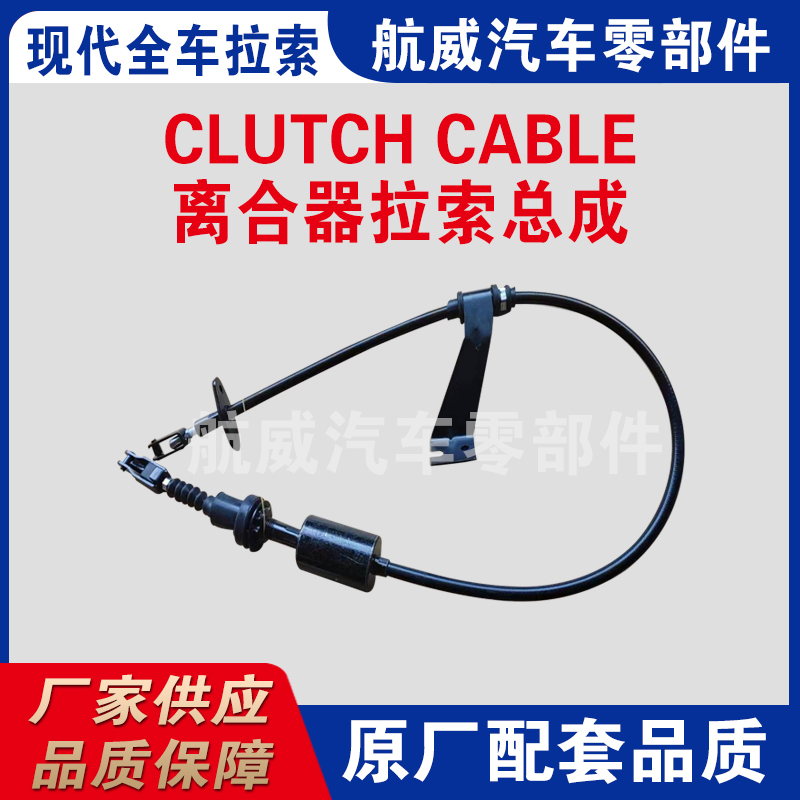clutch slave cylinder hydraulic line
Understanding the Clutch Slave Cylinder and Its Hydraulic Line
The clutch slave cylinder is a crucial component in the hydraulic clutch system of manual transmission vehicles. Its primary function is to engage and disengage the clutch, allowing the driver to shift gears smoothly. In this article, we will explore the role of the clutch slave cylinder, the importance of its hydraulic line, and common issues associated with this vital system.
The Role of the Clutch Slave Cylinder
The clutch slave cylinder is typically mounted on the transmission and functions as part of a hydraulic system that mobilizes the clutch fork. When the driver presses the clutch pedal, hydraulic fluid is pushed through the master cylinder and into the slave cylinder. This activation forces the piston inside the slave cylinder to move, thereby pushing the clutch fork to disengage the clutch. This disengagement allows the driver to shift gears without grinding or causing damage to the transmission.
The slave cylinder is designed to be responsive and efficient, often constructed from durable materials to withstand high pressure and temperature variations. A properly functioning slave cylinder ensures smooth gear transitions, ultimately contributing to the overall performance and longevity of the vehicle's transmission system.
The Hydraulic Line A Critical Connection
The hydraulic line connects the master cylinder to the slave cylinder, enabling the transfer of hydraulic fluid. This fluid is usually a type of brake fluid, designed to withstand pressure and prevent corrosion. The hydraulic line must be in good condition, free from leaks, cracks, or damage, to ensure that adequate pressure is maintained between both cylinders.
A well-maintained hydraulic line is essential for the proper escape of air from the system, an element that can hinder performance. If air enters the line, it can create a spongy feeling in the clutch pedal—indicative of air pockets that diminish the effectiveness of hydraulic pressure. Therefore, regular inspections and maintenance of the hydraulic line are vital to ensure smooth operation.
clutch slave cylinder hydraulic line

Common Issues Associated with Clutch Slave Cylinders and Hydraulic Lines
1. Fluid Leaks One of the most common issues is fluid leakage from the hydraulic line or the slave cylinder. If there's a leak, the hydraulic pressure diminishes rapidly, leading to a failure in clutch engagement or disengagement. Regular checks for fluid levels and visual inspections of the hydraulic lines can help identify potential leaks early.
2. Air in the System As mentioned earlier, air in the hydraulic line can lead to poor clutch performance. Bleeding the system to remove trapped air should be part of routine maintenance, particularly if the clutch feels unusually soft or requires excessive travel before engaging/disengaging.
3. Worn Components The slave cylinder houses moving parts that may wear out over time. Symptoms of a failing slave cylinder include difficulty in shifting gears, a clutch pedal that feels stiff or soft, or unusual noises when engaging the clutch. Replacement of worn components or the entire slave cylinder may be necessary.
4. Corrosion and Contamination Brake fluid can absorb moisture over time, leading to corrosion in the lines and cylinders. This situation can compromise the integrity of the hydraulic system. Replacing fluid at regular intervals can mitigate the risk of contamination.
5. Improper Installation During repair or replacement, improper installation of the slave cylinder or hydraulic line can lead to various issues, including misalignment or insufficient tightness in the fittings. Ensuring proper installation according to manufacturer specifications is essential.
Conclusion
The clutch slave cylinder and its hydraulic line play pivotal roles in the efficient operation of a manual transmission vehicle. Understanding these components can help vehicle owners maintain their systems better and avoid costly repairs. Regular inspections and prompt addressing of any issues related to the hydraulic system can greatly enhance driving experience and vehicle longevity. Whether you are an avid mechanic or a casual driver, knowledge about the clutch slave cylinder and its hydraulic line can facilitate smoother gear shifts and contribute to the overall performance of your vehicle. Regular maintenance, vigilance for early signs of wear, and understanding how to address issues promptly are essential for keeping your vehicle running smoothly.
-
Upgrade Your Vehicle with High-Quality Handbrake CablesNewsNov.01,2024
-
Optimize Your Bike's Performance with Quality CablesNewsNov.01,2024
-
Enhance Your Vehicle's Performance with Quality Clutch ComponentsNewsNov.01,2024
-
Elevate Your Vehicle's Performance with Quality Throttle CablesNewsNov.01,2024
-
Elevate Your Vehicle's Performance with Quality CablesNewsNov.01,2024
-
Affordable Solutions for Your Cable NeedsNewsNov.01,2024
